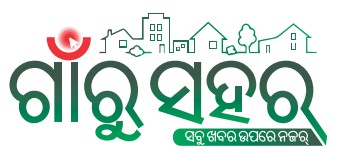Bhubaneswar, May 20: The impact of the National Education Policy-2020 on management education was the subject of an animated discussion at a round table conference held at the Siksha ‘O’ Anusandhan (SOA) Deemed to be University here on Saturday with speakers stressing on the need to empower students with the skill to thrive in the digital era.
The successful implementation of NEP-2020 in management education required the stakeholders to embrace technological advancements which included integration of technology in curriculum design, leveraging technology for assessment and evaluation, utilization of technology for career guidance and fostering collaborations with technology companies, the speakers opined during the two sessions.
The ‘Eastern Region’s Deans’ and Directors’ Round Table on Education 4.0 and Impact of National Education Policy-2020 on Management Education’ was organised by the Odisha chapter of the Association of Indian Management Schools (AIMS) in association with SOA.
Mr. Sridhar Patra, Chairman cum Managing Director of Nalco, was the chief guest at the inaugural programme which was also addressed by SOA Vice-Chancellor Prof. Pradipta Kumar Nanda. Dr. Ramakanta Patra, Vice-President of AIMS (Eastern Region), Prof. Ramesh Behl, President of the Odisha chapter of AIMS and Prof. Anup Samantaray, Dean of the faculties of management sciences and hospitality and tourism management, SOA, also spoke.
The conference focused on Education 4.0, the educational paradigm which integrates various components to create a forward thinking and technologically driven learning environment stressing that it was needed to prepare students for the demands of 21st century.
It identified the key components as core competency, 21st century learning skills, learning methods, use and integration of technology and infrastructure saying integration of these components could promote lifelong learning, critical thinking, collaboration and adaptability preparing the students to excel.
Expressing the view that NEP should be compatible with industry, Mr. Sridhar Patra said technology did have its limitations. “The computer can not be superior to the human brain in many areas. We need not make it our master but it should be subservient to humans,” he said.
Prof. Nanda said student-centric learning was the focal point of NEP-2020 which stressed on the need for multi-disciplinary experts.
SOA, he said, had set up the Centre for Climate Smart Agriculture for developing climate resilient crops and Centre for Bio-medical Engineering and Application for research on biomedical imaging and instrumentation.
Prof. Sheepad Karmalkar, Director, IIT, Bhubaneswar, chaired a thematic session on Education 4.0 and the integration of components with the other panelists being Prof. (Dr.) Amiya Kumar Rath, Vice-Chancellor, Biju Patnaik University of Technology (BPUT), Dr. Parag Kalkar, National Treasurer, AIMS and Professor, Savitribai Phule University, Pune, Dr. Indu Nair, Group Director and Professor, SCMS Group of Institutions, Cochi and Mr. Pankaj Satija, Chairman, FICCI Odisha and Managing Director, Tata Steel Mining.
Dr. Tapan Kumar Chand, President, Vedanta, Odisha and Chhatisgarh, who addressed the valedictory session, said industry and academia should come close at a time when the role of technology had become pronounced. As robotics threatened to eat into work done by humans, it was necessary to be innovative and create new jobs, he said.
Dr. Joseph Marianus Kujur, Director, XISS, Ranchi, Mr. Manas Ranjan Panda, Managing Director, OCAC, Mr. Saroj Kumar Sahoo, Secretary, AIMS, Prof. R.N.Sahu, Treasurer, AIMS, Odisha chapter and Dr. Mihir Ranjan Nayak, Principal, BIITM also spoke.

